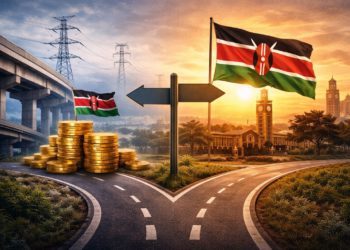Kenya’s mounting debt crisis has become a pressing concern for policymakers and citizens alike. According to the Cytonn report, as of 11th December,2024, Kenya’s public debt stood at approximately KES 11.0 trillion, with domestic debt at KES 5.8trillion and external debt at KES 5.2 trillion. This alarming figure underscores the urgent need for fiscal responsibility and prudent financial management. While borrowing has funded critical infrastructure projects, the repayment burden is straining public finances and threatening economic stability.
Kenya’s debt servicing costs now consume a significant portion of government revenue using 68.3% of its ordinary revenue to service public debt, crowding out essential public investments. This unsustainable trajectory calls for urgent reforms in debt management.
The rapid accumulation of debt can be attributed to several factors, including funding infrastructure projects, budget deficits and borrowing to finance recurrent expenditures. While borrowing is a common tool for financing development, excessive debt can lead to unsustainable debt servicing costs, crowding out essential public spending on health, education, and social services.
To address this crisis, Kenya should enhance revenue collection through improved tax administration and broadening the tax base is crucial. This involves cracking down on tax evasion and avoidance, as well as exploring new revenue streams. Prioritizing expenditure on projects that generate high economic returns and improve public welfare is essential. This means cutting down on non-essential expenditure and ensuring that borrowed funds are invested in projects with tangible benefits. Kenya should consider implementing fiscal consolidation measures to reduce budget deficits and slow down the growth of public debt.
This includes tightening expenditure controls, improving public financial management, and adopting a medium-term debt management strategy. Some expenditure-reducing measures are reducing subsidies and cutting public sector wages. Debt restructuring by negotiating for better terms for existing public debt such as lower interest rates and longer repayment periods is also a structural way of handling public debt. These measures balance the goals of reducing debt while minimizing the harm to economic growth and social welfare. By doing so, Kenya can create a more sustainable fiscal environment and avoid the pitfalls of excessive borrowing.
Kenya’s debt crisis calls for the need for fiscal responsibility. By enhancing revenue collection, prioritizing high-impact expenditures, and implementing fiscal consolidation measures, Kenya can navigate its debt challenges and set the country on a path to sustainable economic growth












